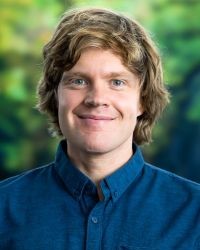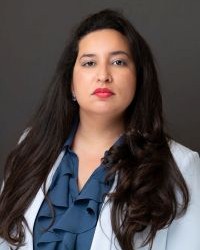2025 SIAM Science Policy Fellows
SIAM is excited to announce the 2025 SIAM Science Policy Fellowship Program recipients. This program selects from a diverse pool of early career professionals that are dedicated to science policy and its advocacy. Fellowship recipients learn about the workings of science policy as it pertains to applied math and computational science by conducting relevant activities and completing an independent project on policy initiatives that further SIAM’s science policy efforts.
As Science Policy Fellows, recipients will have the opportunity to experience firsthand knowledge of science policy by participating in SIAM’s Committee on Science Policy (CSP). Every spring, the CSP meets and engages with representatives of federal agencies relevant to the discipline, such as the National Science Foundation and the Department of Energy. Additionally, the CSP visits congressional offices to promote the importance of research funding, graduate training, and undergraduate education in applied mathematics and computational science data science.
The 2025 Science Policy Fellows are:
- Brian Jongwon Choi, United States Military Academy
- Jan Hückelheim, Argonne National Laboratory
- Kees McGahan, Boston University
- Sabid Rahman, AT&T Labs
- María Isabel Sánchez Muñiz, City College of New York
Brian Jongwon Choi
United States Military Academy
Learn more about Brian, his reasons for pursuing the fellowship, and his envisioned role as a SIAM Science Policy Fellow in the video below.
Jan Hückelheim
Argonne National Laboratory

Dr. Jan Hückelheim is a computer scientist at Argonne National Laboratory. Before joining Argonne, he was a postdoc at Imperial College London and received his Ph.D. from Queen Mary University of London in 2017. Dr. Hückelheim is interested in the fields of automatic differentiation, formal software verification, and scientific computing and their use in modeling and simulating real-world systems in ways that advance our knowledge. He enjoys talking about science and is teaching graduate-level classes at the University of Chicago.
Why did you apply for this fellowship?
With applied mathematics continuing to play a growing role in our society, for example in the form of AI, I believe it is essential that we have research agencies and laboratories whose agenda are controlled by the public, and that have the right people, funding, and public support to ensure that new technologies are used in ways that benefit our society.
As a recent immigrant to the United States, I am aware of the effect that seemingly boring policy details can have on people’s lives, or on the way in which research is performed and research results are used. I applied because I wanted to learn more about how policy decisions are made and implemented.
What are you most looking forward to as a SIAM Science Policy Fellow?
I am excited to meet the other Policy Fellows as well as other people who are involved in Science Policy, and learning about their experience with the effects that policies have on the world around us.
Kees McGahan
Boston University
Learn more about Kees, his reasons for pursuing the fellowship, and his envisioned role as a SIAM Science Policy Fellow in the video below.
Sabid Rahman
AT&T Labs
Learn more about Sabid, his reasons for pursuing the fellowship, and his envisioned role as a SIAM Science Policy Fellow in the video below.
María Isabel Sánchez Muñiz
City College of New York

Dr. María Isabel Sánchez Muñiz is a lecturer in the Department of Mathematics at The City College of New York. She earned her Ph.D. in mathematics from the University of Minnesota, with research interests spanning dynamical systems, partial differential equations, probability, and topological data analysis. Her research applies mathematics to climate science and ecological systems, with her doctoral work developing an energy-based conceptual model for permafrost thawing. Her collaborative research on nitrogen-induced hysteresis in grassland biodiversity was published in The American Naturalist, reflecting her broader interest in modeling natural phenomena. Dr. Sánchez Muñiz has extensive teaching experience across diverse mathematical subjects and has mentored numerous students through research projects. She previously served as a Córdova Fernós Congressional Intern and maintains an active interest in politics. As a climate scientist, she believes mathematical modeling must inform political decision-making—her work stands at this critical nexus where rigorous science meets urgent policy action. Learn more about Dr. Sánchez Muñiz.
Why did you apply for a SIAM Science Policy Fellowship?
I applied to advance the critical connection between mathematical climate modeling and economic policy. The 2025 wildfires in Southern California, estimated to cost over $250 billion, demonstrate how devastating climate impacts threaten our economy. In Alaska, infrastructure damage due to accelerating permafrost thawing will require $24.5 billion by midcentury—costs that can be reduced with lower emissions or preventative adaptation measures, such as innovative rewilding approaches that restore grassland ecosystems to protect permafrost.
Despite these clear economic implications, mathematical insights remain underutilized in policy conversations about emissions targets and adaptation strategies. The fellowship would help me develop frameworks that translate complex climate mathematics into economic terms that policymakers understand. I seek to strengthen my advocacy skills for increased climate research funding by demonstrating the economic return on mathematical innovation. By participating in SIAM's policy initiatives, I can help ensure mathematical perspectives inform climate legislation that balances environmental protection with economic growth—creating pathways for a sustainable economy built on rigorous scientific foundations.
What are you most looking forward to as a SIAM Science Policy Fellow?
I'm looking forward to participating in SIAM's Congressional Visit Days, where I can directly engage with legislators about mathematics' vital role in addressing national challenges. Having experienced science policy from the academic side, I'm eager to witness firsthand how mathematical insights are translated into legislative language and federal priorities.
I anticipate collaborating with the diverse cohort of fellows to develop compelling ways to communicate how mathematical modeling informs questions of resource allocation, infrastructure planning, and climate resilience. Learning effective advocacy approaches from experienced policy professionals will transform how I present my research to non-technical audiences.
The opportunity to contribute to SIAM's policy statements and position papers excites me, as these documents shape funding priorities across federal agencies. I'm particularly enthusiastic about helping articulate the long-term economic benefits of supporting fundamental mathematical research that may not have immediate applications but builds our capacity for future innovation.
This fellowship represents a chance to develop a professional identity that spans both rigorous research and meaningful policy impact—skills I'll carry throughout my career to amplify mathematics' contribution to society's most pressing challenges.
Stay Up-to-Date with Email Alerts
Sign up for our monthly newsletter and emails about other topics of your choosing.



